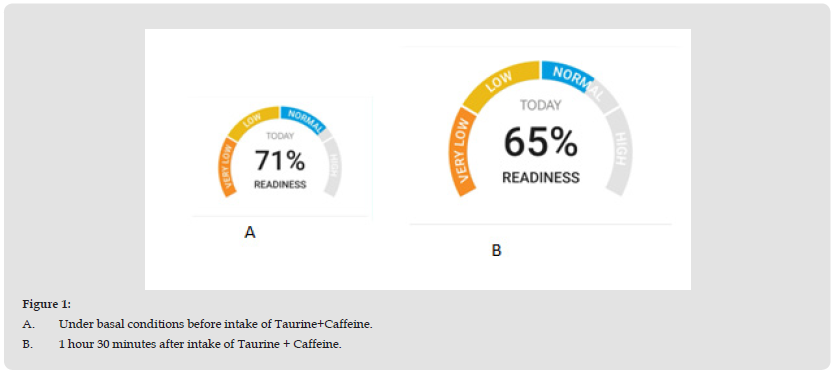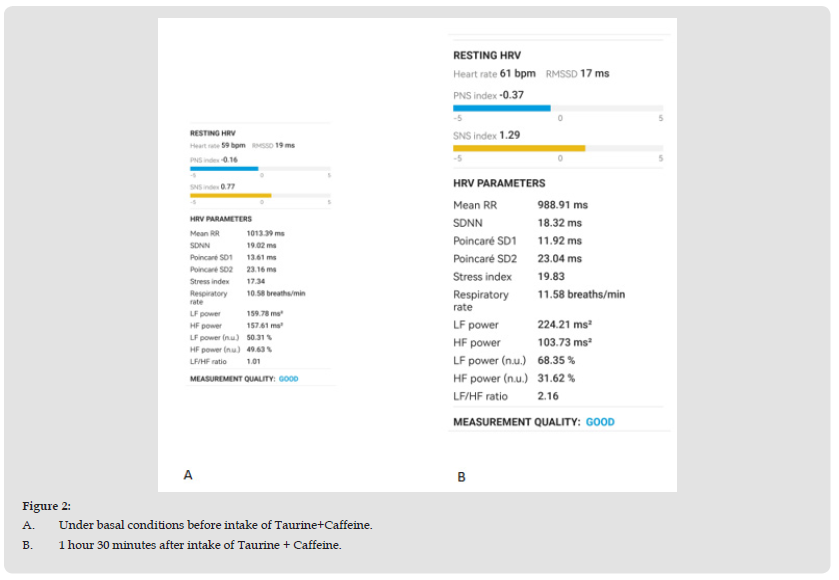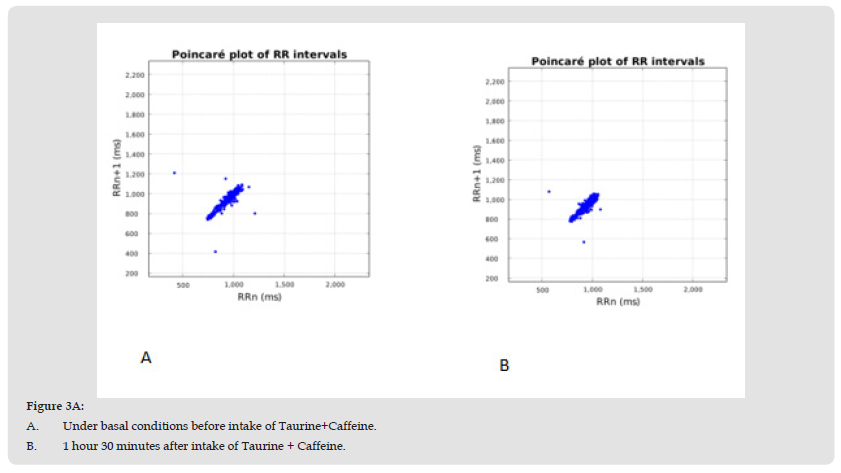Impact Factor : 0.548
- NLM ID: 101723284
- OCoLC: 999826537
- LCCN: 2017202541
Ivan Domuschiev*
Received: March 20, 2023; Published: April 10, 2023
*Corresponding author: Ivan Domuschiev, Endocrinologist Multiprofile Transport Hospital, Department of Internal Diseases Plovdiv City, Bulgaria
DOI: 10.26717/BJSTR.2023.49.007832
The measurement of heart rate variability is the only accurate method for quantifying the function of the autonomic nervous system and its response to stress.Taurine is an amino acid that had been forgotten. But in recent years, its «renaissance» has occurred again. [1] This substance is involved in a number of physiological processes and has a beneficial effect on the muscles, eyes, nervous system and other organs and systems.
Taurine is included in the composition of various energy drinks. It is also used in bodybuilding.Caffeine is one of the most well-known psychostimulants. Coffee is the most commonly used invigorating drink in the world. There are numerous scientific studies on the physiological effects of caffeine. [2-5] It is also present in a number of energy drinks and is used in sports and fitness. The combination of taurine with caffeine is very often used to energize the human body.In this line of thought, the study of the effect of the combination «Taurine + Caffeine» on heart rate variability is relevant. Moreover, the combination of these two substances and its effect on the autonomic nervous system in elderly people over 60 have been insufficiently studied.
We investigated a 61-year-old man in this study. [6-8] He is 178 cm tall, weighs 75 kg and has a BMI of 24.
We used a chest belt «Polar H10» (with BLE Bluetooth transmission of heart signals) to record heart activity. We made a short term measurement (3 min.) of HRV parameters. The obtained data were analyzed with «Kubios HRV» software.
First, we measured HRV-parameters in the morning at 8 o’clock immediately after waking up from sleep under basal conditions (at complete rest, in a supine position, at optimal room temperature and complete silence) (Figures 1-3) We carried out the second measurement of the same parameters for 1 hour. 30 min after intake of 1 capsule (500 mg) Taurine (when it is the peak of the effect of taurine in the body), combined with the consumption of 1 cup of instant coffee (Figures 1A-3A). In this way, we can compare the data from the two measurements of HRV-parameters and see what is the effect of this combination on the autonomic nervous system, its sympatho-vagal balance and the stress index.
Figure 1 A. Under basal conditions before intake of Taurine+Caffeine. B. 1 hour 30 minutes after intake of Taurine + Caffeine.

Figure 2 A. Under basal conditions before intake of Taurine+Caffeine. B. 1 hour 30 minutes after intake of Taurine + Caffeine.

Figure 3A A. Under basal conditions before intake of Taurine+Caffeine. B. 1 hour 30 minutes after intake of Taurine + Caffeine.

Our obtained data for HRV-parameters from both measurements are presented in (Figures 1-3 and 1A,2A,3A).
From the available results it is clear that after intake of taurine + caffeine combination the readiness index slightly decreased from 71% to 65%, the stress index slightly increased from 17.34 to 19.83, and the LF/HF ratio increased (for account of increased sympathetic tone) from 1.01 to 2.16. SDNN slightly decreased, and Poincaré SD1 also decreased, due to an increase of the sympathetic tone [9-11].
The intake of the combination «Taurine + Caffeine» leads to a slight decrease (deterioration) of HRV- parameters in a 61-year-old man.


